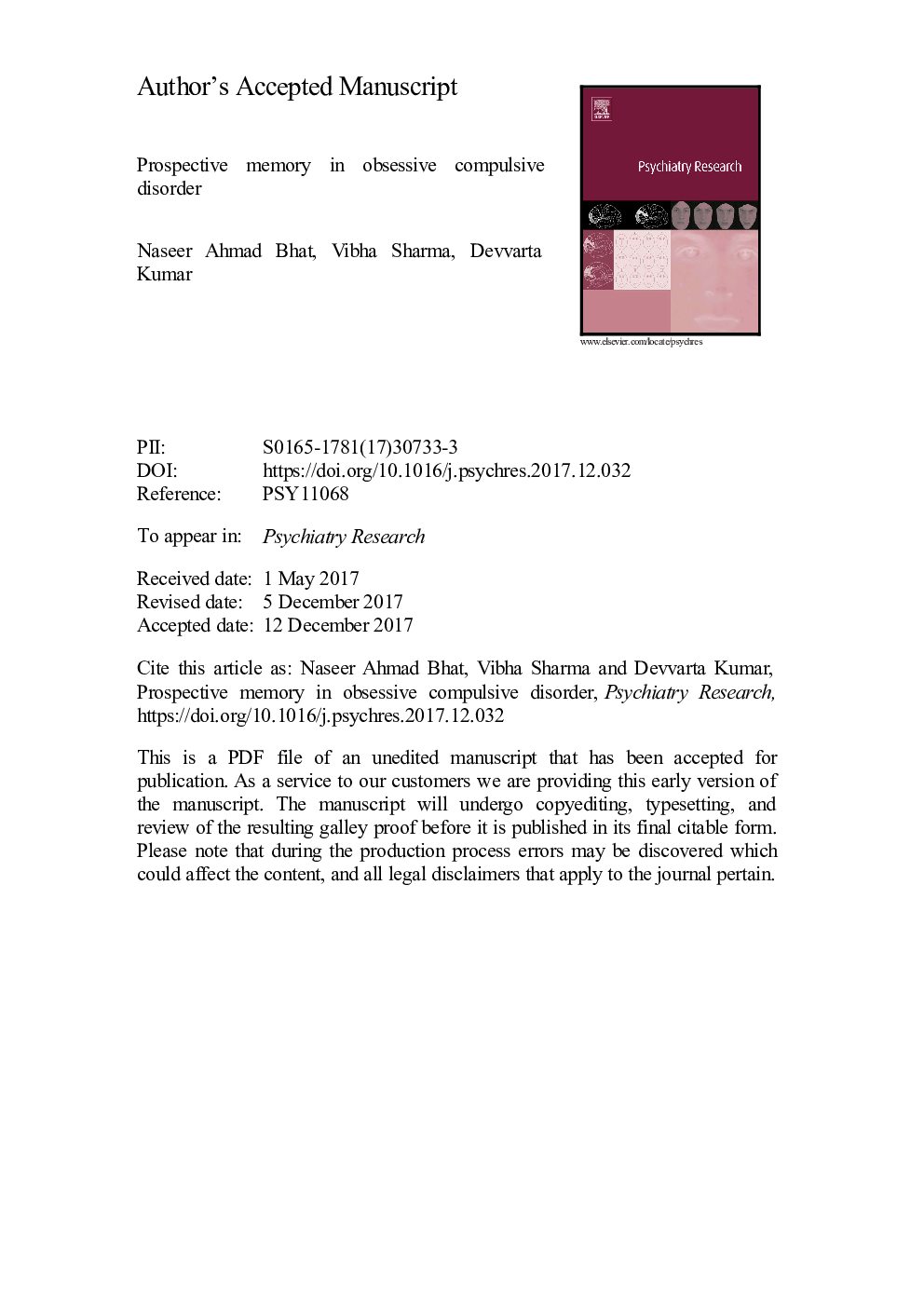| Article ID | Journal | Published Year | Pages | File Type |
|---|---|---|---|---|
| 6811718 | Psychiatry Research | 2018 | 27 Pages |
Abstract
Studies on the nature and extent of prospective memory impairment in patients with obsessive-compulsive disorder are relatively scarce. The present study examined prospective memory in patients with obsessive-compulsive disorder in comparison to patients with schizophrenia and healthy controls. Prospective memory was assessed using Memory for Intentions Screening Test (MIST). Further, the participants were administered Delis-Kaplan Executive Function System Tower Test, Wisconsin Card Sorting Test, and Stroop Test for assessing their planning ability, mental flexibility and cognitive inhibition, respectively. Monitoring was assessed by frequency of clock checking. Results indicated that as compared to healthy controls, the patients with obsessive-compulsive disorder performed poorly on both time- and event-based prospective memory tasks, whereas, patients with schizophrenia performed poorly on time-based prospective memory task only. Further, both the patient groups had comparable performance across time- and event-based tasks. Results of error analysis indicated that patients with obsessive-compulsive disorder mainly committed no response and task substitution errors, whereas patients with schizophrenia committed no response errors. Except monitoring, none of the neurocognitive variables correlated with time or event-based prospective memory in any group. The findings are discussed in the light of their implications for retraining of prospective memory deficits in patients with obsessive-compulsive disorder and schizophrenia.
Related Topics
Life Sciences
Neuroscience
Biological Psychiatry
Authors
Naseer Ahmad Bhat, Vibha Sharma, Devvarta Kumar,
